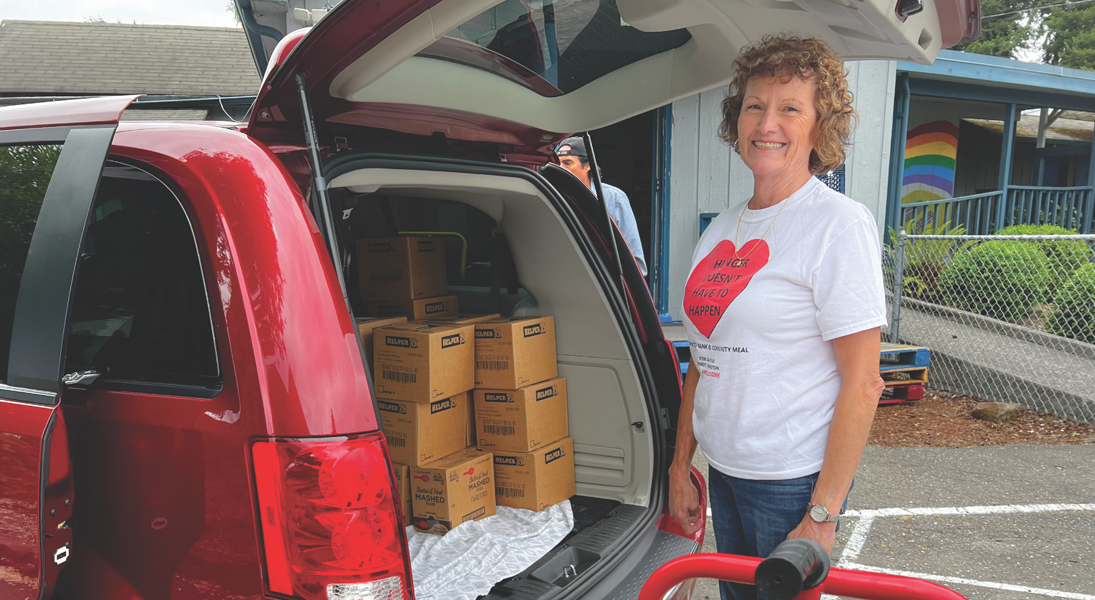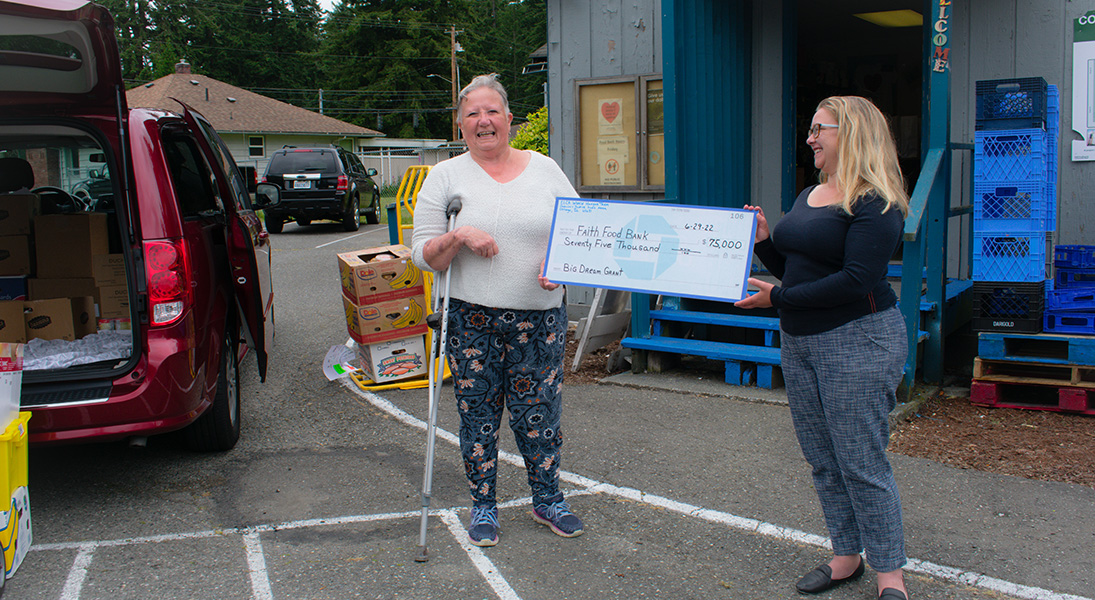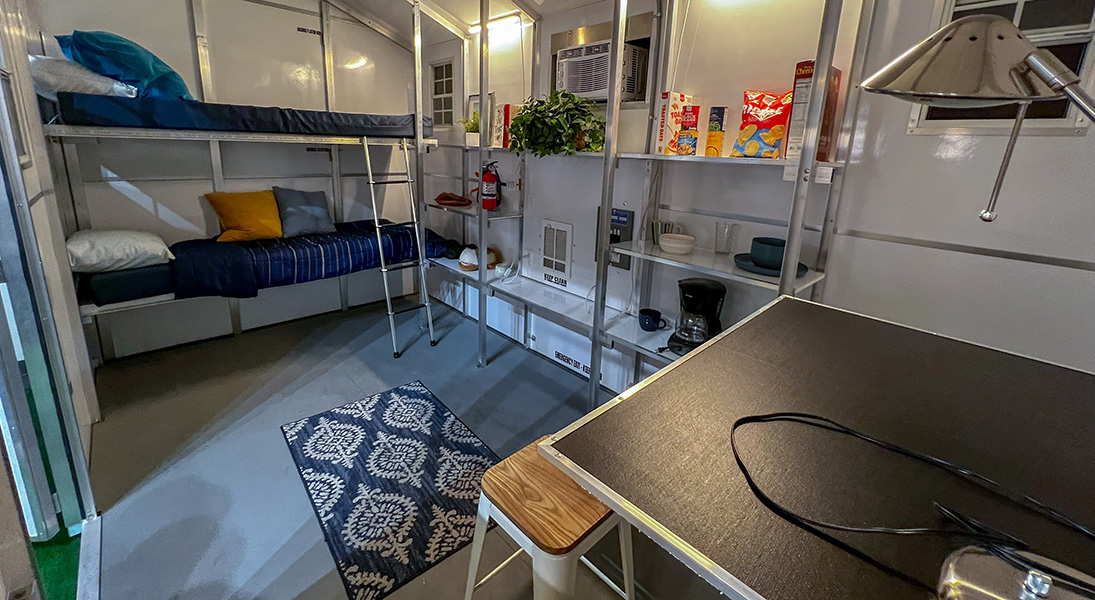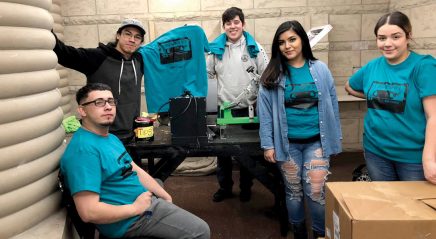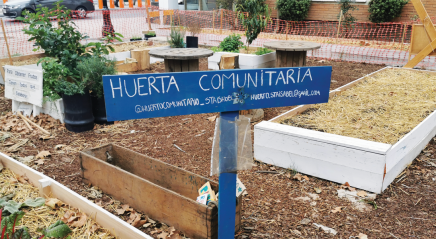Roxana Boroujerdi had spent decades as a social worker serving youth in Everett, Wash., when she opted for a change of pace in her career: She opened an ice cream business. That might seem like a major shift but, at its heart, Boroujerdi said, the work was similar. “There’s nothing that brings me more joy than seeing a happy kid,” she said.
With that, her transition to being the “Fun Times Ice Cream Lady” was complete.
But as she served ice cream—and found it difficult not to give out a joy-inducing dairy treat to every smiling kid who came to Fun Times—she started to hear more from community organizations about children and their families struggling with hunger and housing instability. Boroujerdi began to volunteer with those groups and was struck by how many families needed assistance and had few options for support.
According to the 2021 Snohomish County Point-in-Time homelessness count, 1 in 4 children in Everett are food insecure and 1 in 4 households report being one paycheck away from homelessness.
To help, Boroujerdi, a member of Faith Lutheran in Everett, took on a leadership role with the congregation’s feeding ministry, Faith Family Food Bank. Since 2014 the ministry has been open weekly, with volunteers serving hot meals in the fellowship hall on Tuesdays and distributing groceries on Fridays.
The pallet homes will provide not only shelter to residents, but also dignity and privacy.
At the height of the pandemic, the food bank continued to serve its neighbors, with nearly 1.5 million to-go meals and bags of groceries distributed in 2020 alone. Last year, it served even more. But Boroujerdi recognized that food alone wasn’t enough for the families she serves, many of whom are unhoused.
“I was naïve—I thought my little food bank could end hunger in Everett,” she said. “It’s only gotten worse.”
In search of a more comprehensive solution, Boroujerdi began to wonder if the empty lot behind the food bank could address housing insecurities for families. Those thoughts turned into a big dream: the construction of a Faith Family Village to accompany the congregation’s feeding ministry. With support from the city and land use permits approved, Faith Family Village will consist of eight 100-square-foot homes made by Everett-based company Pallet.
Each unit, which can house up to a family of four, has beds, electricity, heating and air conditioning. Faith volunteers and neighbors have already started donating bedding, storage bins and towels. Families will be able to occupy the units for up to 90 days while they partner with social workers from a neighboring organization to secure permanent housing.
The pallet homes will provide not only shelter to residents, but also dignity and privacy while they access the resources and support needed to find a long-term solution.
Believing change is possible
While researching the homes, Boroujerdi was invited to spend the night in a vacant one at an existing pallet village about 45 minutes from her home. She agreed, saying, “If I’m going to walk this walk, then OK, I’ll spend the night!” She was impressed by the experience and had breakfast and lunch in the village’s community space, which includes restrooms and a common area in addition to its kitchen.
That experience led Boroujerdi and the Faith Family Village planning team to draft a funding proposal to ELCA World Hunger’s Big Dream Grant program. Their hope was that the grant could support the remodeling of Faith’s preschool building into a kitchen and community hub.
“Without proper food and a safe warm place to live, how will people, especially our children, ever be able to become equal members of our society?” wrote Boroujerdi in the grant proposal.
ELCA World Hunger launched the Big Dream Grants program in 2019 with $250,000 across five grants to support ministries that are building and designing innovative and lasting solutions to hunger, poverty and economic inequality. Prior to the program’s launch, the Domestic Hunger Grants program was the only option for ministries seeking funds from the ELCA for hunger-related projects. The Big Dream Grants program expanded this effort, allowing for more significant investment in a few ministries that demonstrate excellence and innovation in their work.
“I believe these homes can really make a difference in kids’ lives.”
As pandemic protections expire and emergency resources are depleted, low-income renters around the country are struggling more than ever. With rising inflation, skyrocketing rents and increasing homelessness, more than half of Big Dream Grant recipients are ministries working on creative and sustainable solutions to end hunger and poverty.
This year record levels of gifts to ELCA World Hunger made it possible to say yes to the big dreams of 12 partner ministries, totaling nearly $1.5 million. This amount includes the community hub space at Faith Family Village, which received a $75,000 grant in June toward the work of the food bank as it prepared to install the pallet homes this fall.
The remodeled space, which is beside the empty lot where the Faith Family Village pallet homes will be, will provide kitchen facilities, tables and chairs for family dinners. A multipurpose space will allow for such activities as homework, tutoring, English Learner classes, budget grocery shopping and meal prep classes, recovery group meetings and more.
ELCA World Hunger funds will also support the Faith Food Bank’s goal of providing specialty items in a systematic way to the diverse community it serves. Lastly, funding will assist with a community garden next to Faith Family Village for use in classes and cooking demonstrations.
At press time, Faith planned to start breaking ground on the village in October.
“I believe these homes can really make a difference in kids’ lives,” Boroujerdi said. “This was always our big dream—to help families and their children and [to] believe change is possible.”



